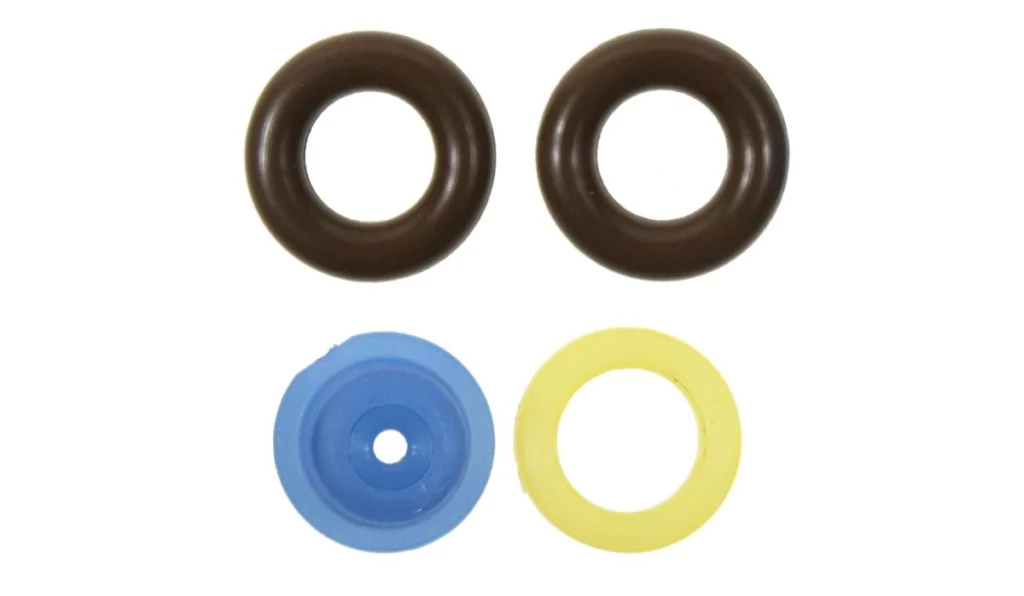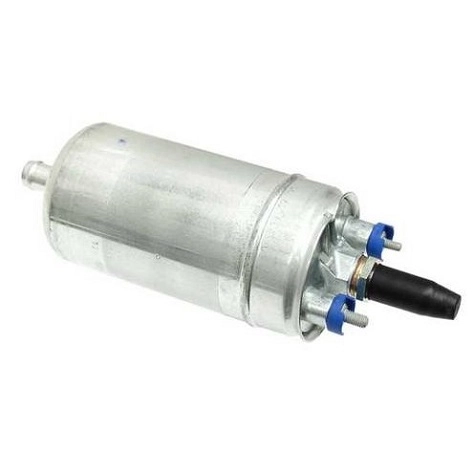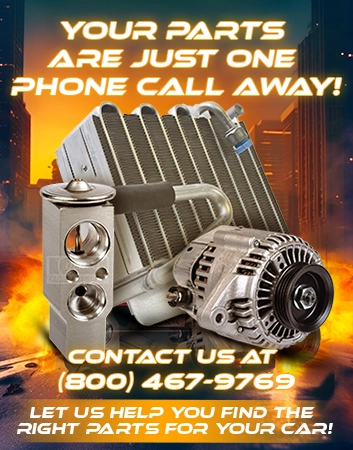Every classic Porsche enthusiast’s fantasy is to travel the world in a vehicle like the Porsche 928. The Porsche 928 has made a lasting impression on the automotive world thanks to its daring style and strong performance.
However, the key to keeping such a work of art in good condition is to recognize and consider its requirements, especially regarding the fuel system, which is the engine’s vital component. The fuel pump, which ensures fuel is delivered smoothly from the tank to the engine and keeps the automobile running at its peak performance, is an essential part of this system.
Even the most durable components of a classic vehicle, such as the Porsche 928 fuel pump, may need maintenance or replacement over time. Knowing when to replace your fuel pump helps prevent unplanned malfunctions and guarantees that your Porsche 928 keeps providing the thrilling driving experience it’s known for.
This tutorial will walk you through the subtleties of replacing the fuel pump in your Porsche 928, ensuring that your cherished Porsche classic stays in top shape for the adventures ahead. Let’s jump right in, shall we?

Fuel System Explained on Your Porsche 928
The Porsche 928, known for its grand touring capabilities and powerful engine, relies heavily on a meticulously designed fuel system to maintain its performance.
This section will cover the key components of the Porsche 928’s fuel system, the differentiation between external and internal fuel pumps across various models, and the operation of the Bosch Jetronic system that orchestrates the fuel delivery process.
Vital Parts of the Fuel System in Porsche 928
- Fuel Tank — The reservoir for the vehicle’s gasoline, strategically placed to enhance balance and performance.
- Fuel Pumps — Depending on the model year and specific variant, Porsche 928s were equipped with different types of fuel pumps: external, internal (in-tank), or both. The external pumps are mounted outside the fuel tank, while the internal pumps are submerged in the fuel to aid cooling and efficiency.
- Fuel Injectors — The fuel injectors atomize the fuel into a fine mist, allowing it to mix with air before combustion.
- Fuel Filter — The fuel filter ensures the fuel’s cleanliness, removing debris and impurities that could harm the engine.
- Fuel Pressure Regulator — The fuel pressure regulator manages the pressure of the fuel supplied to the injectors, ensuring consistent pressure across various driving conditions.
- Fuel Lines and Hoses — The connections that carry fuel from the tank to the engine, integral to the fuel delivery system.
- Jetronic Unit — A pivotal component in the Porsche 928, the Bosch Jetronic is an electronic fuel injection system that optimizes the air-to-fuel ratio, enhancing the engine’s efficiency and response. This system uses sensors to assess engine conditions and adjusts fuel delivery accordingly, ensuring optimal performance.
External and Internal Fuel Pumps
The Porsche 928 introduced various fuel delivery systems throughout its production years. Earlier models primarily employed external fuel pumps due to the technological standards of the time. These pumps were typically located along the undercarriage or near the car’s rear.
As technology advanced, Porsche integrated internal fuel pumps into later 928 models. These in-tank pumps improved efficiency and reliability by being cooled by the surrounding fuel, reducing the risk of overheating and vapor lock.

How It Works – The Bosch Jetronic System
The Bosch Jetronic fuel injection system stands as a testament to the technological advancements achieved in the automotive industry during the production years of the Porsche 928.
This system was at the forefront of fuel injection technology, delivering unmatched precision and efficiency, significantly contributing to the Porsche 928’s legendary performance.
Precision Fuel Delivery — The Jetronic system utilizes electronic control to meter fuel with remarkable accuracy. Unlike carburetors that rely on vacuum pressure, the Jetronic system uses sensors and electronic control units (ECUs) to adjust the fuel-air mixture based on real-time engine data, ensuring optimal combustion at all times.
Adaptability to Engine Conditions — One of the hallmarks of the Jetronic system was its ability to adapt to various engine conditions. Whether the engine required more fuel during acceleration or less during idle, the Jetronic system could adjust the fuel injectors’ operation to maintain the ideal air-fuel ratio, enhancing the engine’s responsiveness and efficiency.
Reduction in Emissions — When environmental concerns became more prominent, the Jetronic system contributed to cleaner emissions by ensuring more complete fuel combustion. This reduced harmful exhaust emissions and improved fuel economy, making the Porsche 928 more environmentally friendly than its contemporaries.
Increased Reliability — Moving mechanical components to electronic control in fuel delivery reduced the likelihood of system failures and the need for frequent adjustments. The reliability of the Jetronic system was a significant advancement, contributing to the Porsche 928’s reputation for durability and reduced maintenance requirements.
Enhancing Engine Performance — The precise control over fuel delivery allowed the Porsche 928’s engine to produce more power and torque while maintaining a smooth operation. The Jetronic system’s contribution to the engine’s performance was particularly noticeable regarding acceleration and power delivery, making the driving experience more exhilarating.
The Bosch Jetronic system was a groundbreaking innovation in the field of fuel-injected engines at that time, setting new standards for performance, efficiency, and emissions control. Its integration into the Porsche 928 not only underscored Porsche’s commitment to technological excellence but also solidified the 928’s status as a modern classic, celebrated for its advanced engineering and timeless appeal.
Signs Your Porsche 928 Has a Fuel System Issue
Owning a Porsche 928 is akin to possessing a piece of automotive history, a timeless and exhilarating blend of luxury and performance. However, like all classic machines, it demands attention and care, particularly when it comes to its fuel system.

Recognizing the signs of a fuel system problem can help you address it before it leads to more significant issues or even a breakdown. Here are some key indicators that your Porsche 928 might be experiencing fuel system difficulties:
Non-Starting Vehicle — If your Porsche 928 struggles or fails to start, it could indicate that the fuel pump is not delivering the necessary fuel to the engine. A fuel pump on its way out may not generate enough pressure to get the fuel where it needs to go, resulting in a car that won’t start.
Engine Sputtering at High Speeds — One moment, you’re cruising smoothly, and the next, your engine sputters as if it’s about to stall, particularly at higher speeds. This sputtering can signal that the fuel pump cannot maintain a consistent fuel flow to the engine under higher demand.
Loss of Power Under Stress or Acceleration — When accelerating or climbing hills, your Porsche 928 might feel like it’s losing power or struggling more than usual. This loss of power can often be attributed to a failing fuel pump, which cannot supply the increased volume of fuel the engine requires under load.
Decreased Fuel Efficiency — A sudden drop in fuel efficiency can sometimes be attributed to a fuel system problem. If the fuel pump becomes inefficient, it may cause the engine to run lean or rich, which can negatively impact fuel consumption.
Fuel Smell — The smell of fuel either under the hood or near the vehicle’s rear (where the fuel tank is located) clearly indicates a fuel leak. Leaks can occur in various places, including the fuel lines, fuel tank, or connections. Not only does this reduce efficiency, but it also poses a significant safety risk.
Can a fuel pump work but be weak?
Yes, a fuel pump can work, but it is still weak. This weakened state may not provide enough fuel pressure to meet the engine’s demands, particularly during high load or high-speed conditions. A weak pump may initially seem functional at lower speeds but can lead to engine sputtering, poor acceleration, and eventually stalling as it fails to deliver the necessary fuel volume.
This issue can be particularly pronounced in high-performance vehicles like the Porsche 928, where precise fuel delivery is critical for optimal engine performance. Regular fuel pressure and volume testing can help diagnose a weakening fuel pump before it leads to more significant engine performance issues.
Common Culprit on Porsche 928’s Fuel system
Understanding the common culprits can help diagnose problems early and keep your Porsche 928 running smoothly. Here are the usual suspects:

Defective Fuel Pump — The heart of the fuel system, a failing fuel pump, can lead to a lack of fuel pressure, resulting in non-starting or engine sputtering, especially at high speeds.
Clogged Fuel Filter — A filter choked with debris restricts fuel flow, leading to a drop in engine performance and efficiency. Regular replacement is key to maintaining optimal fuel flow.
Defective Fuel Pump Relay — The fuel pump relay controls the power to the fuel pump. A malfunction can cut off power to the fuel pump, preventing the engine from starting.
Expired/Bad Fuel — Fuel sitting in the tank for too long can degrade, leading to poor engine performance. This is particularly relevant for classic cars like the 928, which may not be driven regularly.
Fuel Regulators, Check Valve, and Dampeners — These components help maintain the correct fuel pressure. Faulty regulators or dampeners can lead to inconsistent fuel pressure, affecting performance.
Defective Jetronic Unit — The Jetronic unit, central to the fuel injection system of the Porsche 928, can fail due to age and mechanical and electrical issues, leading to poor engine performance, increased emissions, and decreased fuel efficiency.
Fuel Leaks on Rubber Hoses and Tank — Over time, the rubber hoses and seals within the fuel system can deteriorate, leading to fuel leaks. These leaks not only reduce the efficiency of the fuel system but also pose significant safety risks. Regular inspections can help identify and address leaks before they become a major issue.
Addressing these common culprits promptly can prevent more significant issues down the road. Regular inspections and maintenance are crucial, especially for classic vehicles like the Porsche 928, to ensure they continue to provide the driving pleasure they are known for.
Find Top-Notch Porsche Parts at Competitive Prices
At eEuroparts.com, we pride ourselves on offering an extensive collection of genuine Porsche and OEM parts at prices that are hard to beat online. We aim to support every Porsche fan with premium Porsche parts, making the high maintenance cost a distant memory.

Each item in our selection is chosen with your Porsche’s specific needs in mind, ensuring they fit perfectly and uphold OEM quality standards. Choosing eEuroparts.com means you’ll enjoy superb savings without skimping on quality, solidifying our position as the first choice for Porsche DIY enthusiasts who value affordability and reliability.
Replacing your Porsche 928’s Fuel Pump
The Porsche 928, celebrated for its blend of luxury and performance, relies on an efficient fuel system to maintain its renowned driving dynamics. Over time, however, the fuel pump may succumb to wear and tear, leading to many issues that can cause a major headache. Replacing a faulty fuel pump is crucial to restoring your vehicle’s reliability and performance.
While the task may seem daunting, replacing the external fuel pump in your Porsche 928 can be a rewarding DIY project. With the right approach and tools, you can ensure your Porsche 928 continues to deliver the exhilarating performance it’s known for. But before that, here are some of the things we have to prepare:
Replacement Preparation
Before rolling up your sleeves and replacing your Porsche 928’s fuel pump, it’s crucial to ensure that you and your vehicle are adequately prepared for the task ahead. This preparation facilitates a smoother repair process and significantly reduces the risk of accidents or damage to your classic Porsche. Here’s how to safely prepare your car for fuel pump replacement:
Setting Up Your Workspace
Work on a Flat Surface — Ensure your Porsche 928 is parked on a level and stable surface to prevent any unintended movement during the repair process.
Ensure Good Ventilation — Working with fuel involves the risk of fume accumulation. Working in a well-ventilated area, preferably outdoors or in a space with ample airflow to dissipate harmful vapors is essential.
Disconnect the Battery — Disconnect the battery to prevent electrical mishaps before starting work, especially on your Porsche 928’s fuel system. This safety step is crucial to avoid sparks that could ignite fuel vapors.
Safety Equipment
Safety should never be compromised, especially when working with a vehicle’s fuel system. Equip yourself with the following safety gear to protect against potential hazards:
Working Gloves — Wear durable gloves to protect your hands from fuel, sharp edges, and other potentially harmful substances.
Goggles — Protect your eyes from any splashing fuel or debris with a pair of safety goggles.
Spill Kit — Have a spill kit or absorbent materials to quickly address accidental fuel spills, minimizing slip hazards and environmental impact.
Fire Extinguisher — Keep a fire extinguisher within easy reach. Having a couple of them in your work area doesn’t hurt. Just make sure that it is suitable for fuel fires.
Electric Fan for Ventilation — If working in an enclosed space, use an electric fan to help ventilate the area. Ensure the fan is positioned to blow fumes away from your workspace and any ignition sources.
Fuel-Approved Containers — Any drained fuel should be collected in containers designed for fuel storage to prevent leaks and fumes.
Tools and Equipment Required
Having the right tools and equipment for this DIY job means a swift and safe repair experience. Here are the tools and materials you will need to replace the fuel pump in your Porsche 928:
- Safety goggles
- Working Gloves
- Wheel chocks
- Hydraulic jack rated 2-ton
- Jack stand “flat top” design rated 2-ton
- ⅜” ratchet and socket set
- Flare nut wrench set
- Screwdriver set
- Gas approved container
- Cloth rags
- Spill kit
- Fire extinguisher

The Step-By-Step Guide
Raising the Porsche 928 on Jack Stands
Using the hydraulic jack, raise the car to your comfortable working height. Place the jack stand on lift points on all sides. Give it a shove to ensure that it is securely lifted.
Removing the Fuel Pump Cover Plate
Detach the fuel pump cover plate by unscrewing the nuts and securing it to the tank straps, revealing the fuel pump and filter assembly.
Draining the Gas Tank
Locate the fuel pump supply hose from the fuel tank and disconnect it by loosening its clamp. Do this slowly, as gasoline will pour out of it. Catch the drained gas using a gas-approved container. Don’t forget to wipe any spilled gas.
Disconnecting Fuel Lines
Locate the fuel filter’s outlet pipe and loosen it using a flare nut wrench. An open-ended wrench is doable, but a flare nut wrench is much safer.
Removing Fuel Pump and Filter Assembly
Loosen all four 10mm outer mounting nuts on top of the fuel filter and below the fuel pump. Once done, slide the assembly out of the bracket holder to remove it.
Loosen the fuel pump’s wiring connection. The ground wire (brown) will have an 8mm nut, and the positive wire will have a 7mm nut. This is done to prevent a wrong connection later on.
Replacing the Fuel Pump and Filter from its Mounting Bracket
Remove the S-pipe from the fuel pump to the fuel filter at both ends. Then, loosen the clamp holding the fuel pump and filter to the bracket. Slide the pump and filter out of the bracket to remove it.
Install a new fuel pump and fuel filter on the assembly, ensuring they are positioned correctly. Pre-install the S-pipe, then tighten the clamp that holds the fuel pump and filter to the bracket. Lastly, tighten the S-pipe connections using a flare nut wrench.
The rest of the installation is just the reverse of the removal.

Tips and Tricks of the Trade
- Don’t reuse drained gasoline if it smells foul, has expired, or has a degraded color. Ensure all of the fuel tank’s gas has been drained properly to prevent contamination.
- The old fuel filter releases dirty gas. Do not attempt to add it to your drained gasoline, as the debris on it will also clog your new filter once you fill it back into the tank.
- You can actually replace the fuel pump and filter while it is installed on the bracket, but this will be slightly difficult, especially if you are not that experienced yet.
- Cleanliness on this repair is very important. Block any fuel line openings using aluminum foil and rubber bands.
- A thorough inspection of the fuel tank, rubber mountings, and pipes will be beneficial in spotting damages that may fail soon. This way, you can plan ahead and decide whether to stop the repair and order the parts to do it in one go or order them so that you are prepared whenever it fails.
- Prime the fuel pump first by switching the ignition to the “on” position without starting the engine. Check if the pump is working and if there are any leaks in the removed pipes. Once everything is good, install the fuel pump cover plate, and you are done.
Maintenance Tips to Extend Fuel Pump Life
Maintaining the fuel pump of your Porsche 928 is crucial for ensuring the longevity and performance of your classic car. Here are some maintenance tips that can help extend the life of your fuel pump and ensure your vehicle runs smoothly:
Regularly Changing the Fuel Filter
A clean fuel filter is essential for protecting your fuel pump and ensuring it operates efficiently. A clogged filter can cause the fuel pump to work harder, leading to premature wear. Replace your fuel filter every 20,000 to 30,000 miles, as specified in your Porsche 928 maintenance guide.
Keeping the Fuel Tank Above a Certain Level
Running your Porsche 928 on a low fuel tank can cause the fuel pump to overheat, as the fuel acts as a coolant for the fuel pump. Keep your fuel tank at least a quarter full to prevent the fuel pump from running dry and overheating.
Using High-Quality Fuel
Contaminants in low-quality fuel can clog the fuel system and force the fuel pump to work harder, leading to increased wear and potential failure. To reduce the risk of contamination, use high-quality, clean fuel and avoid using fuel from stations with a high turnover.
Utilizing a Fuel Stabilizer for Long-Term Storage
If you plan to store your Porsche 928 for an extended period, the fuel in the tank can degrade and damage the fuel system. Add a fuel stabilizer to the tank before storage to preserve fuel quality and protect the fuel pump and system.
Regularly Inspecting for Fuel Leaks
Fuel leaks in the rubber hoses or tank can indicate a failing component in the fuel system, putting additional strain on the fuel pump. Regularly inspect the fuel lines and tank for signs of leaks and promptly address any issues to prevent further damage to the fuel pump and system.
By following these maintenance tips, you can help ensure the fuel pump in your Porsche 928 remains in good working order, preserving the performance and reliability of your classic car.
Need Fuel system parts? eEuroparts.com got you!
For top-quality Porsche 928 fuel system parts, look no further than eEuroparts.com, your go-to source for European car components. Our extensive catalog ensures you find exactly what you need, from fuel pumps to filters, all guaranteed to meet or exceed OEM standards.
At eEuroparts.com, we’re not just about parts; we’re about passion. Our expert team is ready to assist with any queries, ensuring you always get the right part. Competitive prices and fast, reliable shipping make us the preferred choice for Porsche enthusiasts. Trust eEuroparts.com to keep your classic Porsche 928 running smoothly with our selection of premium parts. Visit us today and see the difference quality and expertise can make.












